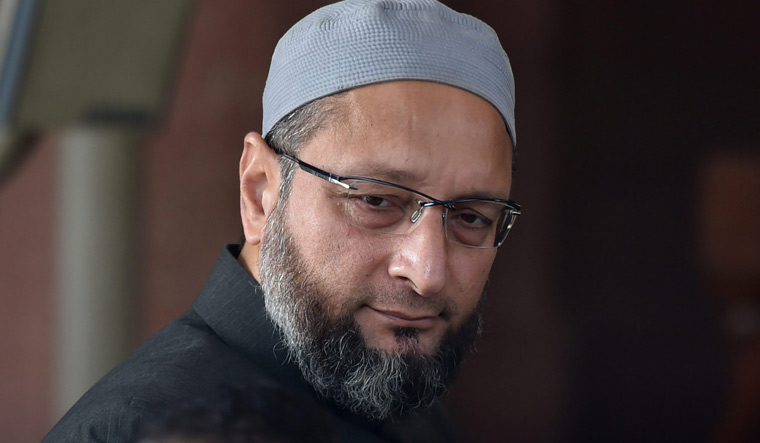On the morning of February 1, 2020, I travelled from Hyderabad to Bidar in Karnataka to meet Nazbunnisa and Fareeda Begum, imprisoned in Bidar district prison. Nazbunnisa has a 12-year-old daughter who studies at the school where Begum is the headmistress. I have seen many absurd things in my three-decade-old political career, but this incident is the strangest. Nazbunnisa and Begum were arrested for the crime of sedition, except that they did not commit any crime at all.
Briefly, these are the facts: the daughter, who was 11 then, participated in a school play around the time when Muslims across India were participating in the movement against the Citizenship (Amendment) Act and related issues. A local worker of the Akhil Bharatiya Vidyarthi Parishad objected to a specific monologue in the play that was delivered by the girl: “I will ask him (Prime Minister Narendra Modi) where he was born and where his documents are. If he can’t show them, I will hit with a chappal. Amma, I’m scared. Where do we go, leaving our home, our country and our livelihood?”
Overzealous and ever so committed to illegality, the police in Bidar “interrogated” nearly 85 schoolchildren aged nine to 11 years five times over nine days, in complete violation of law and decency. Eventually, it was decided that Nazbunnisa and Begum would be arrested under Section 124A, which criminalises seditious speech. This was perhaps one of the first instances where a single mother and a school principal were booked for a non-crime committed by a minor child. But it is not nearly the first time that the law of sedition has been used to persecute, intimidate and imprison citizens.
According to a national database maintained by Article-14.com, nearly 11,000 individuals have been booked under Section 124A in the past ten years; 65 per cent of them after Modi became PM in 2014. Ninety-six per cent of sedition cases filed against 405 people [for criticising politicians and governments] over the last decade were registered after 2014. As many as 149 of the accused were booked for making “critical” or “derogatory” remarks against Modi; 144 people were booked for criticising Uttar Pradesh Chief Minister Yogi Adityanath. Between 2017 and 2018, the previous BJP government in Jharkhand had slapped sedition cases on 10,000 unnamed tribals for the crime of erecting stone plaques with provisions of Schedule V of the Constitution and other laws dealing with rights of adivasis. Between 2011 and 2013, the AIADMK government in Tamil Nadu booked around 9,000 people on charges of sedition for protesting against the Kudankulam Nuclear Power Plant.
It is a common misconception that Section 124A is necessary to prevent insurrection and treasonous activity against the republic. There are other provisions of the law that specifically deal with violent attempts to overthrow the state. Section 124A exclusively deals with spoken or written words that bring “into hatred or contempt” or “excite or attempt to excite disaffection” against the government. The provision parodies itself by further clarifying that “disaffection” includes “disloyalty and enmity”. In an act of generosity, the provision exempts speech that expresses disagreement with measures of the government or proposes lawful change while not expressing disaffection.
Also read
- Anti-sedition law: Is it a necessary evil?
- Anti-sedition law: Who is responsible for the flaws in our law enforcement system?
- Is anti-sedition law killing journalism in the northeast?
- In Manipur, the oppressed has become the oppressor: Activist Erendro Leichombam
- How the seditionist label cost Aseem Trivedi
- Aisha Sultana case eclipses larger concerns in Lakshadweep
In societies based on rule of law, crimes are not actions that are ‘objectionable’, but those that cause tangible harm to individuals or society at large. Laws should not penalise words, and they certainly should not penalise feelings that such words may rouse among readers or listeners. Most important, citizens ought to know if their actions are crimes in the first place. Prosecutors should be able to objectively prove that the act itself was a crime. However, it is simply impossible for a prosecutor to prove if particular words evoked particular feelings among particular people.
It is obvious that the sedition law serves governments, and not the republic. The Constitution protects individuals regardless of their ‘feelings’ towards it. Only autocrats are offended by the idea that there are citizens who have unfavourable and unpleasant feelings towards the regime. Simply setting ‘guidelines’ for the valid use of an otherwise unconstitutional provision does not protect citizens’ rights from insecure and trigger-happy governments.
As the Supreme Court hears constitutional challenges against sedition, it has the opportunity to protect citizens like Nazbunnisa from the future trauma of being punished for the words spoken by their children. It has the opportunity to recognise that bad laws do not become constitutional simply because of a few ‘guidelines’. The court has the opportunity to inaugurate a robust criminal law jurisprudence that strikes down criminal laws penalising acts that are otherwise victim-less or non-violent.
The author is president of the All India Majlis-e-Ittehad ul Muslimeen.


